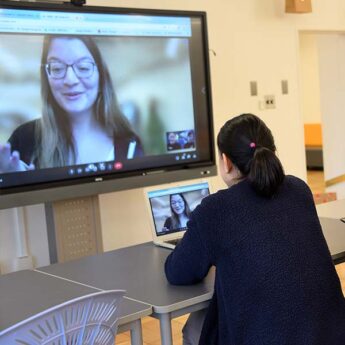Twenty-five years of high expectations at the BST
Any school community is a transient one: children grow up, teachers move on and the world turns. In today’s international schools, the turning world seems to spin at dizzying speed and the pace of change shows no sign of relenting.
Twenty-five years ago, no teenager had ever sent a text message, no teacher had ever received an email and Mark Zuckerberg was still in kindergarten.
Snapchat? Vine? In 1989, communication tools like these were the stuff of science fiction and wearable technology meant a watch without hands.
When Prime Minister Margaret Thatcher opened the British School in Tokyo (BST), even the Iron Lady could never have envisaged the world 25 years later.
And yet, the little ones who cheered and waved their Union Jacks that day have now, for the most part, entered the world of work, their foot on the first rung of the ladder that will take them onwards (and hopefully upwards) through their careers.
Did their schools prepare them for life in 2014 and beyond? I hope so.
It has become commonplace for today’s educators to wax lyrical about “21st-century learning” and to extol the virtues of “21st-century competencies”, but it is my belief that good teachers in good schools recognised these proficiencies long ago.
Technological advances may have made it possible to deliver information in a different way, and have certainly made it possible to measure more accurately the efficiency and effectiveness of that delivery, but the fundamentals of outstanding education remain the same.
Young people must be encouraged to be curious, caring, considerate and open-minded.
They must learn to concentrate, to focus on what is important, and to be discerning in their analysis of the flood of information to which they have access.
They should develop teamwork and leadership skills, learn the art of clear communication—always dependent on a willingness to listen—and gain the confidence to be individuals.
Above all, they must build the resilience that will enable them to cope with adversity, learn from their mistakes and thrive on change.
These are not 21st-century competencies; they are, and always will be, the hallmarks of a supportive, balanced approach to education built on high expectations and genuine care for the individual.
Anniversaries are strange, arbitrary things for the most part.
The Beatles released their first US album exactly 50 years ago; does it sound better today than it did last year—or the year before that? At BST we are happy to celebrate 25 successful years of delivering a first-class education to the international community of this vast, exciting city, but we are happier about what might happen next.
Just four years ago we introduced A Levels, enabling our students to move smoothly through BST from the age of three to 18 before progressing to top universities around the world.
We continue to build on the firm foundations that have been laid and, using our extensive parental network, we have recently introduced an ambitious programme of work experience and community service, and a sophisticated lecture series introducing students to the world beyond the classroom.
Even more exciting is the centrepiece of our 25th anniversary plans. Later this year, in partnership with United World Schools, we will build and open a school in a remote village in Cambodia. For the next 10 years our students and teachers will help it to grow and develop.
What better way to recognise the importance of education for all children, and to help our young people learn that most important of life skills—the ability to stand in the shoes of others?





